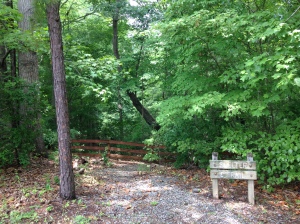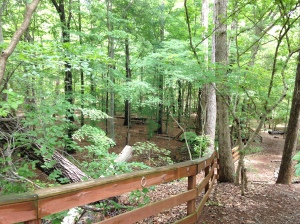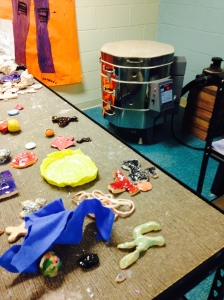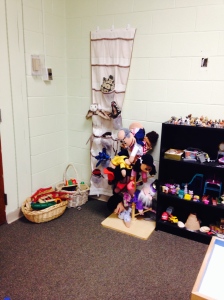In the last week of May I journeyed to beautiful Charlotte in North Carolina to spend the week with my colleagues at Alexander Youth Network (AYN). AYN’s main campus or headquarters, and the home of it’s Psychiatric Residential Treatment Facility (PRTF) and one of their Day Treatment Programs, is located on a picturesque 60 acre property with buildings nestled in a woodland area with open grounds and recreation areas for their clients. This campus also houses facilities including a gym, indoor swimming pool and cafeteria.
AYN is a non profit community based organisation receiving funding from fees for services (medicaid, insurance and the like) as well as contributions from individuals, corporations, foundations and government agencies. AYN serves children ages 5 to 18, who are referred from hospitals, physicians, parents, schools and from state and county organisations such as department of social services and juvenile justice. AYN serve over 7000 children each year.
AYN provide an array of mental health treatment for serious emotional and behavioural difficulities including: diagnostic and outpatient services, community based programs, multisytemic day therapy, therapeutic foster care and an onsite, 36 bed psychiatric residential treatment facility. The idea being that children, young people and families accessing their services can move from service to service with established working relationships of trust within the one organisation. Added to this is the strong grounding the staff have in child development, trauma, attachment and neurodevelopment as a core component of their orientation and ongoing training.
It was a contrast to go from services that have decisively removed themselves from the medicaid system or appear to have more flexibility than is given from the public health system and as a result appear better funded and able to provide longer term intervention for their clients. At AYN the financial resourcing struggle of service delivery was evident in comparison to the private services I had visited. While the AYN staff were at times a bit despondent about this, I was nonetheless impressed at what they were offering and able to offer. There is something about not having resources at your fingertips that can contribute to a creative resourcefulness and the team at AYN do this well. In fact when it comes to neurodevelopmentally informed and respectful interventions AYN have lots to offer:
- Individual therapy including EMDR, play therapy, sand tray and an awesome play room furnished largely by donation and financial grants
- Art Therapy including pottery and their very own kiln
- A ropes course for adventure therapy
- A Labyrinth
- Occupational Therapy with a motor and sensory furnished room including a swing and tunnels.
- Physical Therapy
- Reiki
- Swimming
- Vegetable and flower bed gardens and gardening program
- Woodland walking trails
- Playgrounds
- Gym
- Developmentally matched classrooms that afford children regular (every 10 – 15 mins) brain breaks and recreation
- Classrooms that are highly sensory and provide calming, alerting and regulating activities including rocking chairs, bean bags, chill out areas and such
- Bike program whereby each PRTF child has their own bike.
Of more concern to me than their financial resourcing issues, were the systemic restrictions being placed on AYN in relation to the length of service delivery they are able to offer their clients. The public health system funding children coming into the PRTF, those clients with the most serious of emotional and behavioural disturbances, are placing pressure on the service to treat and “repair” these children in 3 months. The years of clinical practice, much of the theory out there, and my more recent acquisition of neurodevelopment and trauma expertise have taught me that it takes more than 3 months to form a trusting relationship with some of these kids.
And we know that it is only in the context of such trusting relationships that these children can being to heal.
So with that knowledge I take my hat off to my colleagues at AYN and their ability to work within a public health system that places considerable restraint on their ability to really heal these kids. The staff I met talked openly of the 30 day review process they have to undertake to retain or regain funding for ongoing work and the associated challenges. Despite this, the passion and commitment for their work and the children and families they serve sees them rise daily to these challenges and provide meaningful connections and healing opportunities for North Carolina’s more vulnerable citizens.
















